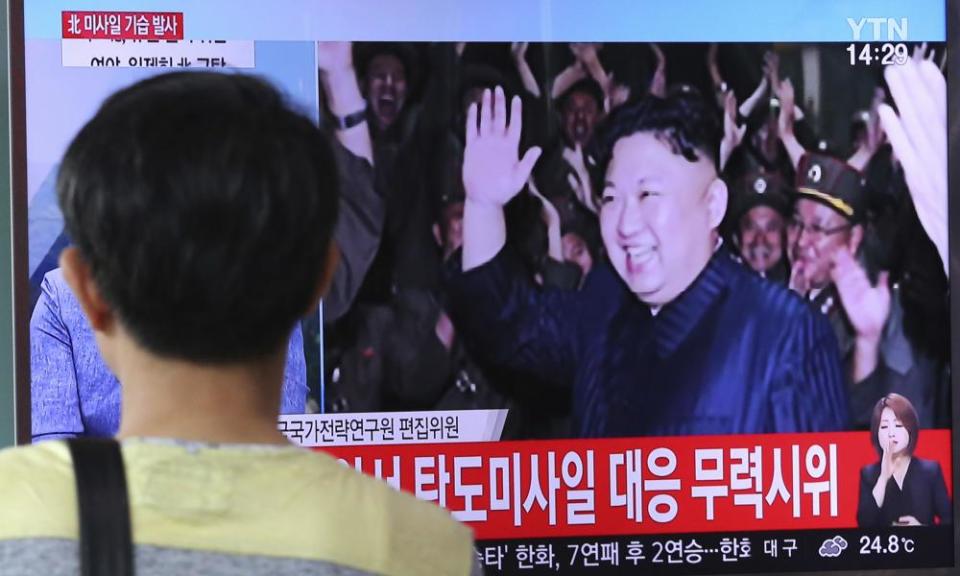US secretary of state Rex Tillerson tells North Korea: 'We are not your enemy'
US secretary of state says Washington does not seek regime change in Pyongyang and does not blame China for crisis, despite president’s tweet

Rex Tillerson has said the US would welcome a dialogue with North Korea and insisted the US did not seek regime change in Pyongyang, telling the country: “We are not your enemy.”
The secretary of state said the North Koreans’ nuclear weapons programme would have to be on the table at any such talks and that the outcome would have to be that the regime would have to relinquish its arsenal while the US would provide security assurances.
But he went out of his way to assure the leadership under Kim Jong-un that the regime would not be endangered if it dispensed with its growing nuclear arsenal.
“We do not seek a regime change, we do not seek the collapse of the regime, we do not seek an accelerated reunification of the peninsula,” Tillerson said. “We do not seek an excuse to send our military north of the 38th parallel.”
The conciliatory tone and the emphasis on dialogue represented a pronounced contrast with Donald Trump, who has become significantly more agitated about North Korea as it continues its tests of long range missiles.
The Republican senator Lindsey Graham said he had been told by the president that the regime’s continued development of an intercontinental ballistic missile (ICBM) capable of delivering a nuclear weapon to the US mainland would lead to war between the two countries.
“He has told me that. I believe him,” Graham told NBC’s Today programme.
Tillerson’s tone was also markedly different to Trump’s on China’s role with regard to North Korea, and its failure to pressure North Korea into curbing its weapons programme.
“I am very disappointed in China,” Trump tweeted on Sunday. “They do NOTHING for us with North Korea, just talk. We will no longer allow this to continue. China could easily solve this problem!”
Speaking at a rare appearance before the press at the state department, Tillerson stressed that while China did have a great deal of potential leverage on Pyongyang, “we certainly don’t blame China for the situation in North Korea. Only the North Koreans are to blame for this situation.”
Such open dissonance between the president and members of his cabinet have become commonplace in the Trump administration. Tillerson conceded he had differences with the president – citing the example of the nuclear agreement with Iran, which Trump adamantly opposes – but he presented the divergent views as a plus, and a motivation in his job.
“If we did not have those differences, I would not be serving him,” Tillerson said, giving an insight into the working relationship between the two men.
“We have a good relationship ... He calls me late at night on the weekends,” the secretary of state said. “It is a very open relationship and it’s one in which I feel quite comfortable telling him my views.”
While Trump has delivered ultimatums to North Korea, insisting that it would not develop ICBMs on his watch, Tillerson conceded that the lack of feasible military options gave Washington little choice but to seek a diplomatic solution.
“We initiated a sustained, continued and intensified campaign of what I like to call peaceful pressure because the options available to us ... are limited, particularly if we think we are operating under a short period of time,” said the secretary of state, who will embark on a trip to east Asia later this week.
“We felt the appropriate thing to do first was to seek peaceful pressure on the North Korean regime to have them develop a willingness to sit and talk with us and others, but with the understanding that a condition of those talks is that there is no future in which North Korea holds nuclear weapons or the ability to deliver nuclear weapons to anyone in the region, much less to the homeland.”

